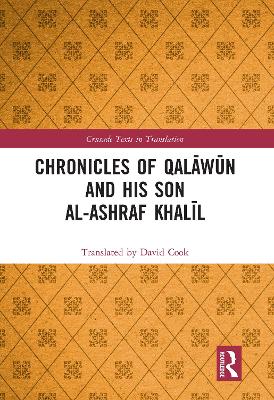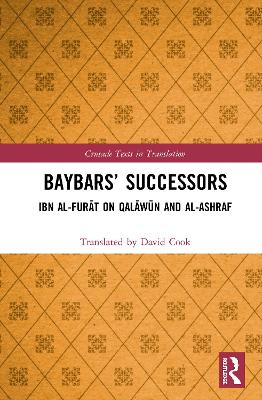Crusade Texts in Translation
2 total works
Chronicles of Qalāwūn and his son al-Ashraf Khalīl
by Translated by David Cook
This volume provides translations of texts on the Mamluk Sultan Qalāwūn (1279-90) and his son al-Malik al-Ashraf (1290-93), which cover the end of the Crusader interlude in the Syrian Levant.
Translated from the original Arabic, these chronicles detail the Mamluk perception of the Crusaders, the Mongol menace, how this menace was confronted, and a wealth of materials about the Mediterranean basin in the late thirteenth century. Treaties, battles, sieges and embassies are all revealed in these chronicles, most of which have not been translated previously.
The translated texts provide a range of historical records concerning Qalāwūn and al-Ashraf,
and include the court perspective of Ibn `Abd al-Ẓāhir, the later biography by his nephew Shafī`, and the writings of the Mamluk historian Baybars al-Mansūrī.
Ibn al-Furat (d. 1405) is an understudied Mamluk historian, whose materials for the period of the later Crusades is unique. While sections of his history for the period prior to 1277 have been translated, later sections have not. His text provides both an overview and a critique of earlier historians, and supplies us with a large number of unique documents, treaties, and intimate discussions that are not to be found elsewhere. This translation provides a continuous narrative from 1277 until the assassination of al-Malik al-Ashraf in 1293, with selections from Ibn al-Furat's later entries concerning the Crusades until 1365.

